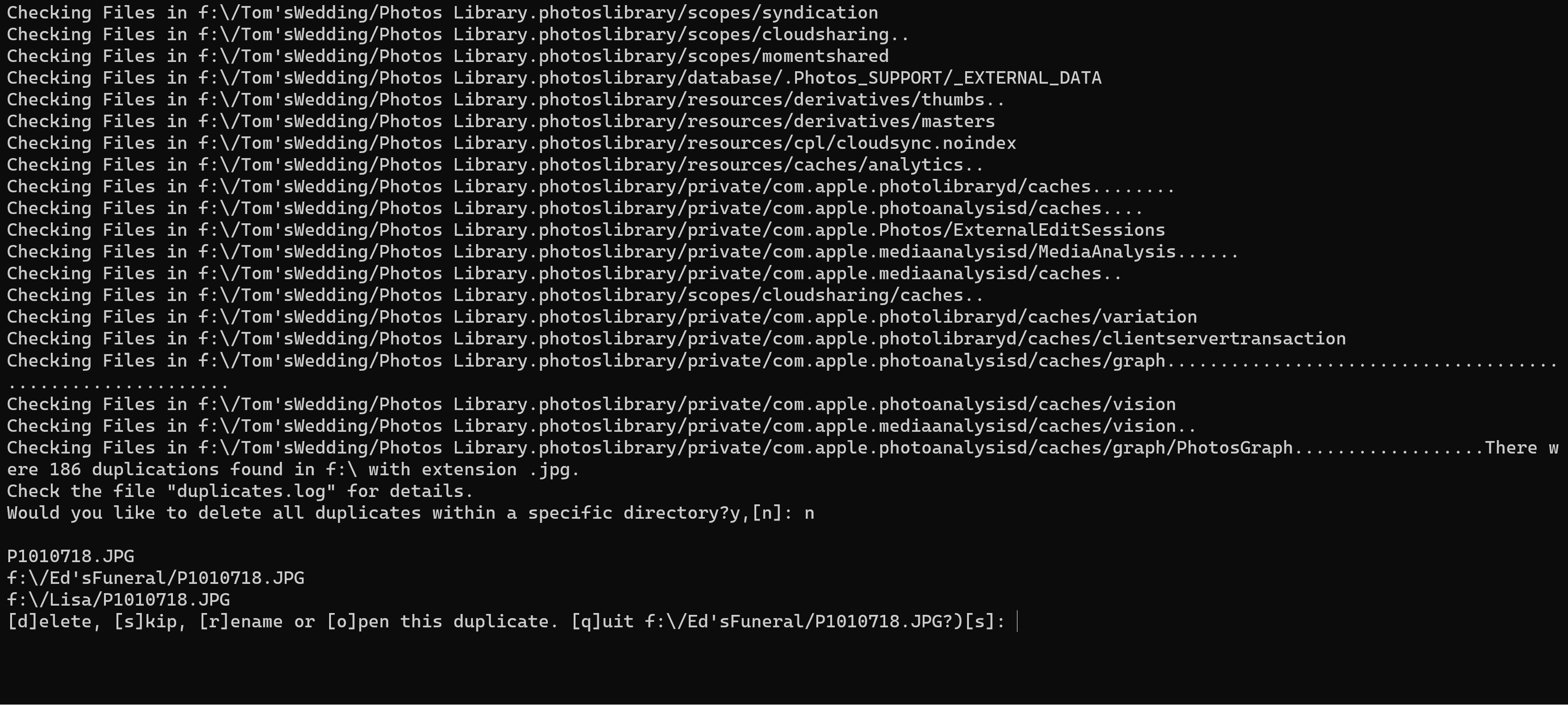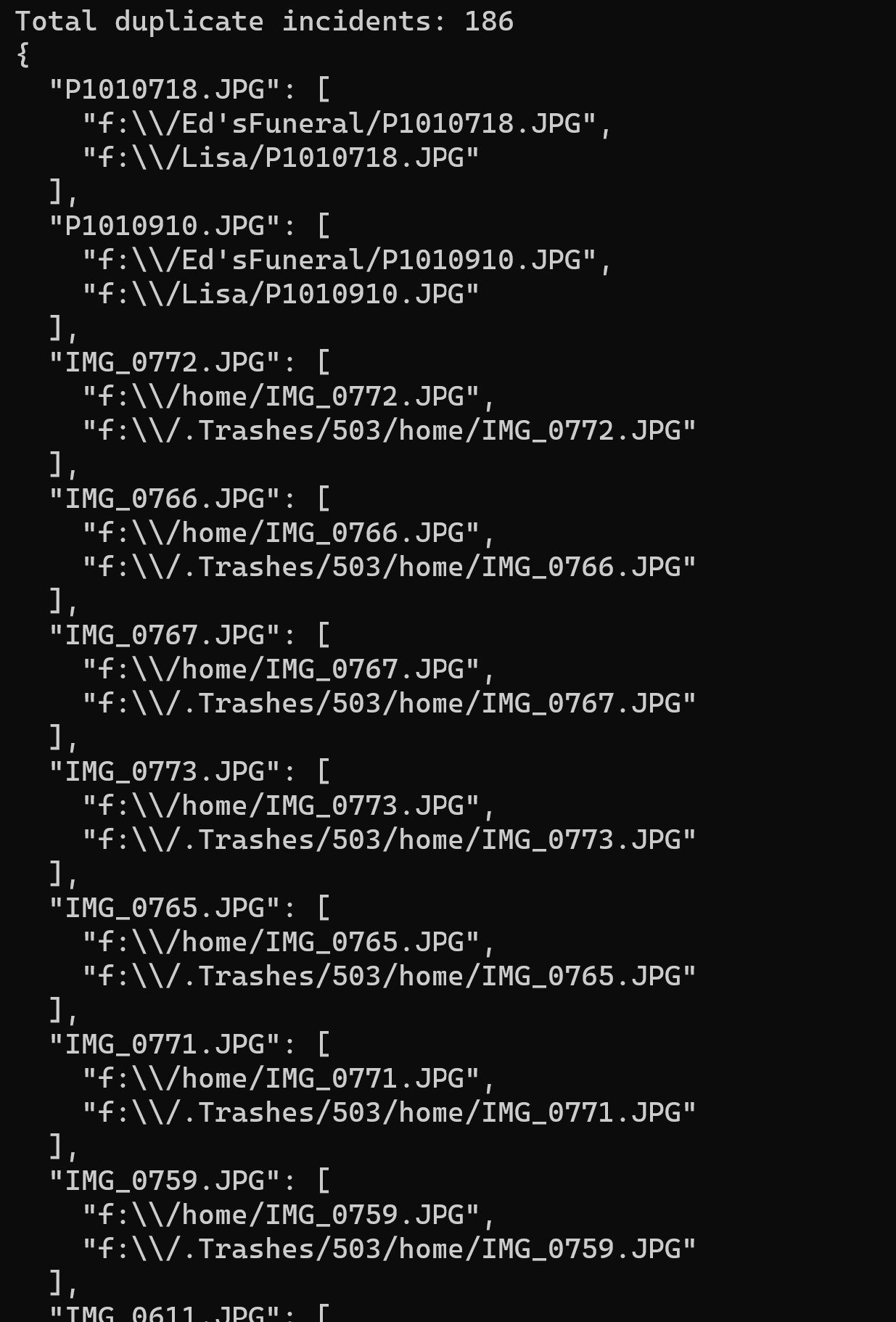antidup v1.1.5
AntiDup
Platform independent, interactive command line utility for Finding, renaming or removing duplicate files from a file system
Requires node.js to be installed
Download node for your system here
Features
- Use from the command line
- Search the file system recursively
- Optionally open each duplicate manually or automatically open each group of duplicates
- Filter search by file extension
- Creates a log file (default: duplicates.log) that contains the duplicate search results.
- Search for duplicates by comparing binary data.
- Delete all duplicates in a specific file path in one key stroke
Usage
Command Line
antidup string: root of search path <string: file extension> <boolean: open duplicates automatically><string: logFileName <boolean: compare using bytes>
When skipping optional arguments, a place holder must be provided. Use false for boolean and null for strings.
antidup / .jpg false null true
Example:
This will search all files and directories under "/" for duplicate filenames with the .jpg extension and when listing the duplicates it will open them with the default application for inspection.
antidup / .jpg true
The flow of the dialog would occur something like this:

- As shown in the image files are displayed as they are being checked.
- Then the option to delete all duplicates within a specific directory is displayed
- The first duplicate file is displayed along with the full path of the duplicates
- Options to delete, skip, rename or open the first duplicate are displayed as well as the option to quit.
- That process will continue for all duplicates
duplicates.log
Everytime you run antidup a duplicates.log file is created in the directory from which antidup is executed. It contains a list of all the duplicates found in the following format.
 You can provide a different name for the log file using the
4th argument to the function. When using the useBytes option, duplicates will be identified with a path for each group of duplicates and not the file name as shown in the previous example.
You can provide a different name for the log file using the
4th argument to the function. When using the useBytes option, duplicates will be identified with a path for each group of duplicates and not the file name as shown in the previous example.